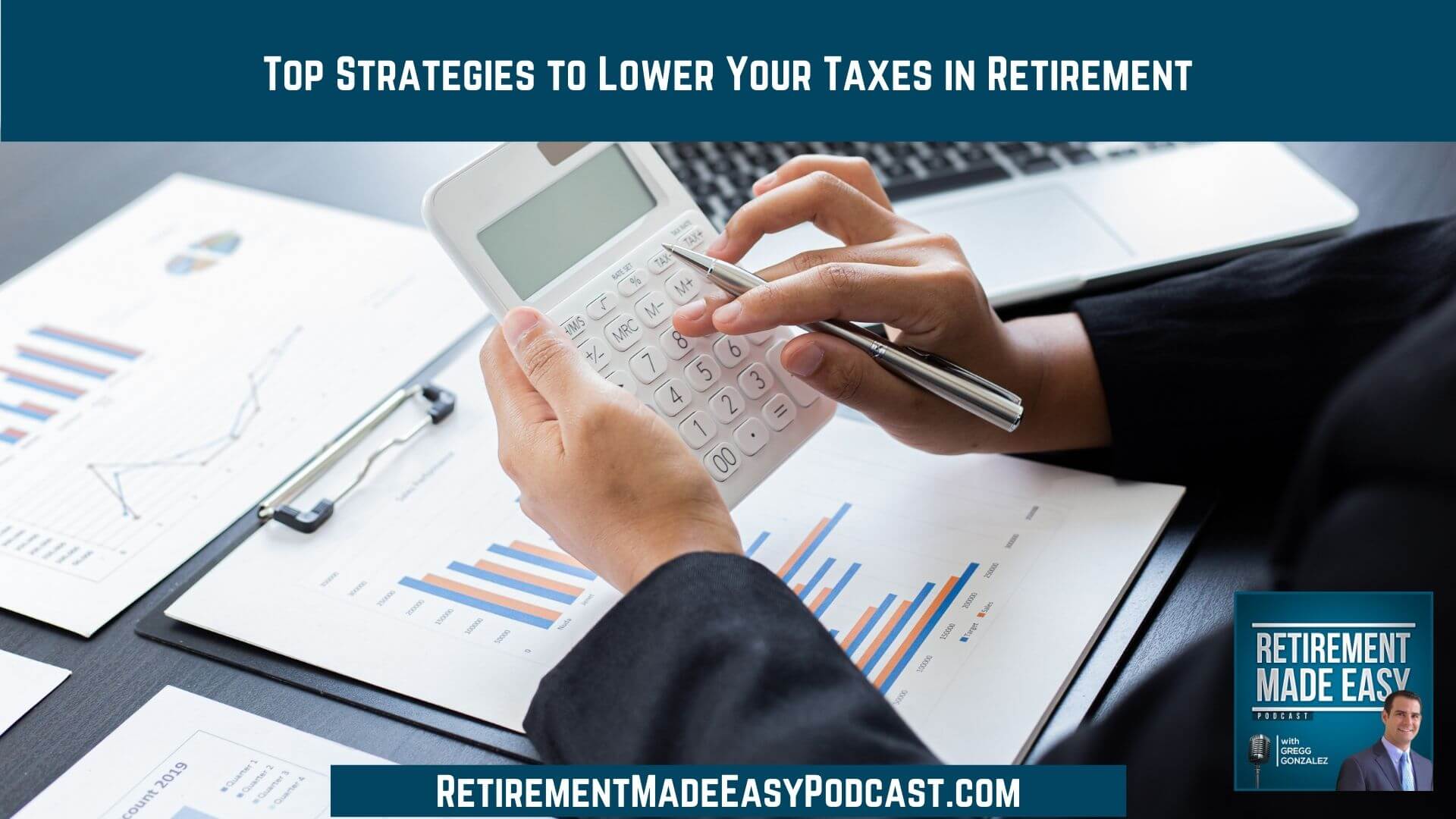
I recently spoke on the phone with someone nearing retirement who was questioning what their taxes would look like in retirement. Would they be lower? Higher? What strategies can be implemented to keep your tax bill lower? I share some of my favorite strategies in this episode of Retirement Made Easy!
You will want to hear this episode if you are interested in…
- [4:18] Social Security retirement income
- [6:48] Teaser: The most tax-friendly states to retire to
- [7:25] A Roth conversion strategy for Florida
- [10:44] The most tax-efficient retirement income
- [11:33] What to do with pension income
- [13:06] Take advantage of the low rate on capital gains
- [14:05] Use a 529 plan to set aside money for college
- [15:04] Come up with a forward-looking tax strategy
Social Security retirement income
Your taxable income will determine how much of your social security is subject to federal income taxes. Even the high-income earners receiving social security still receive 15% tax-free. They pay federal income tax on 85% of their benefit. Other people only pay taxes on 50% of their social security income. Why? Because their provisional income is far lower.
When you claim your benefit can change your tax planning as well. Many people claim it strategically, knowing that it won’t all be taxed at the Federal level (whereas a withdrawal from a 401k or IRA is taxed).
The majority of states don’t tax social security income (Illinois is one example). However, Missouri is one of the few states that may tax your social security—but it depends on your income. Is there a way to work around that? Listen to find out!
Retiring to Florida? Wait on those Roth conversions
If you plan on living in Florida for more than 6 months a year, you’ll be a Florida resident. I have a few different couples who became Florida residents in their retirement. They wanted to do Roth conversions, so I advised them to wait until they became Florida residents—and didn’t have to pay state taxes in Florida. They’ll still pay Federal income taxes, but save a chunk of change by not paying state taxes. Will you stay in the same area when you retire? Or move away to a state like Florida, Arizona, or Texas? These things have to be considered when planning your retirement taxes.
Should you limit how much you work in retirement? I share my thoughts, so keep listening!
What do you do with pension money?
If you claim a monthly pension or annuity through an employer, that’s taxable income that must be reported. It’s why many people prefer to take the lump-sum option because it gives them flexibility. It’s not guaranteed taxable income if you take the lump sum and roll it into a 401k or IRA.
If you don’t have the option to take a lump-sum payment, find out when your pension kicks in. If you’re retiring at 60 but your pension income kicks in at 65, think about doing Roth conversions while you’re in a lower income tax environment. You can manipulate the taxable income that you have and utilize all the tax advantages out there.
How do you take advantage of low rates on capital gains? Listen to hear my thoughts!
Come up with a forward-looking tax strategy
You have to constantly look ahead into the coming years. You want to map out year by year what your tax strategy will be. You could move to Florida and start doing Roth conversions. You could make a donation to your church or a favorite charity. You could contribute to a donor-advised fund. As you’re planning your retirement income strategy, you have to focus on taxes. You want to optimize your retirement income in the most tax-efficient way possible.
Connect With Gregg Gonzalez
- Email at: Gregg@RetireSTL.com
- Podcast: https://RetirementMadeEasyPodcast.com
- Website: https://StLouisFinancialAdvisor.com
- Follow Gregg on LinkedIn
- Follow Gregg on Facebook
- Follow Gregg on YouTube



